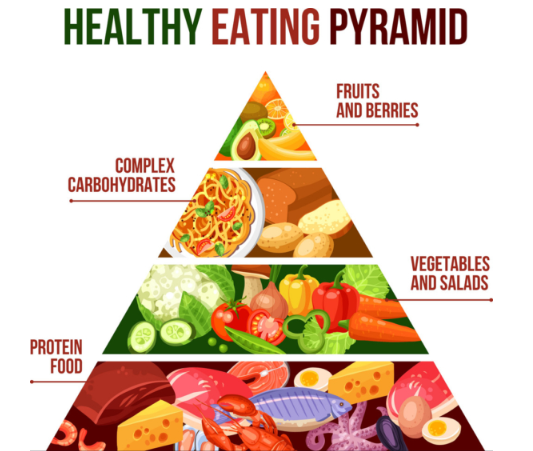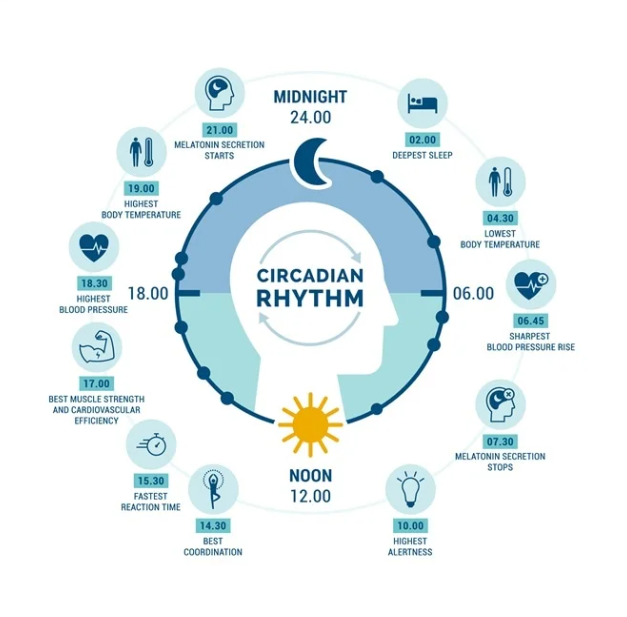Shift workers are a big part of the U.S. workforce. Especially in key areas like health care and transportation. Nearly 15% of workers have hours outside the usual 9-5. Because of this, being as efficient as possible is important.
However, working these hours often leads to more tiredness. It also raises the chance of shift-work disorder. This can lower both productivity and safety.
It’s key to look into good ways to be more productive in shift work. Making regular schedules, better sleep spots, and using new tech helps a lot. These steps boost performance and care for the health of workers.
Looking into work conditions shows how they help with doing better at jobs. A study in 2020 in Cogent Business & Management saw a link. It found better work spots lead to happier workers and better job results.
Dr. Alan Hedge also found something interesting. Workers in places with a lot of natural light did 2% better. This could mean $100,000 more each year for every 100 workers. This shows how key a great work environment is for shift work productivity.
Understanding Shift-Work Disorder
Shift-work disorder happens when work schedules mess up a person’s body clock. This condition often affects those who work non-traditional hours. It messes with their sleep and alertness.
What is Shift-Work Disorder?
This disorder comes with trouble keeping a normal sleep routine. Sleep Foundation says it leads to insomnia and feeling too sleepy. One in five shift workers struggle with it, notes National Center for Biotechnology Information.
Common Symptoms of Shift-Work Disorder
People with this disorder often feel too sleepy or can’t sleep. They may feel very tired and unhappy. It can make them feel moody, stressed, and unable to deal with normal tasks.
Impact on Productivity and Health
Shift work can really lower productivity. It can cause about a 2.5% drop in getting things done. Night shifts cause the most problems. It also makes it hard to focus and remember things. This can lead to worse work performance and cost employers more, says National Center for Biotechnology Information.
Shift work can also lead to serious health issues. It raises the chance of accidents at work, mistakes, and chronic health problems. Conditions like heart disease and diabetes are more common. Some types of shift work can even increase cancer risks for some people.
Importance of Consistent Scheduling
Sticking to a schedule is key to avoid health issues from shift work. It helps keep sleep regular, making work and life balance better. Schedules that don’t change much cut down on tiredness and mistakes. They make work safer and more efficient.
Why Consistency Matters
Regular schedules help workers sleep well, which boosts health and job output. Predictable shifts ease stress and tiredness. Studies suggest that focused workers are 20% more productive with fewer distractions and the proper tools.
Tips for Maintaining a Regular Schedule
To balance work and life, keep sleep times the same, even on days off. Employers should help by not changing shifts often and by limiting night shifts. Good schedule planning marks start and end times, breaks, and days off. This planning improves alertness, task managing, and team performance while reducing conflicts.
Creating an Optimal Sleep Environment
Shift workers need a good sleep space for restful sleep. Studies show that inconsistent sleep means poor sleep hygiene. Light control and less noise help you sleep better and work well.
Reducing Light and Noise
Cutting down light and noise helps with sleep. Blackout curtains, eye masks, and earplugs work well. They help those who sleep in daylight. Avoiding blue light from screens at night is also key. It lets melatonin do its job, aiding sleep.
Waking up at the same time everyday helps set a sleep rhythm. This is important for good sleep hygiene. The right bedroom temperature, between 60 and 67 degrees, ensures sound sleep.
Avoiding Distractions
Keep your sleep space calm by minimizing distractions. Don’t have caffeine 6 hours before sleep. Keep pets out of the bed. A bedtime routine is helpful. Reading or aromatherapy with essential oils before bed can relax you. Choose calming colors for your room and avoid bright ones for better relaxation.
For tips on a great sleep space, visit how to create the perfect sleep.
Maintaining a Healthy Diet
Shift workers need a healthy diet to stay productive and full of energy. It’s key to eat well and avoid some foods to feel great. This helps a lot with their odd work hours.
Foods that Boost Energy
Eating right is a must for shift workers to keep their energy up. Foods like whole grains, fruits, and lean meats provide lasting energy. They help you stay alert without a sudden crash.
Adding berries, avocados, and greens to your meals boosts alertness. A study says eating more fruits and veggies increases well-being and creativity. Drinking water improves focus by 25%, making hydration very important.
What to Avoid
Avoiding certain foods is also vital. Stay away from sugary cereals and soda to avoid energy lows. Losing just a little body water can hurt your focus, showing how important water is.
Cutting down on caffeine and alcohol helps sleep quality. Such changes in diet can boost productivity and cut down sick days. It leads to better work performance overall.
Using Strategic Naps
Strategic naps can really help shift workers. A good nap improves alertness and brain power. This is key for those working odd hours.
Benefits of Power Naps
Power naps boost focus and how fast we react. They last 10 to 20 minutes. A short nap of 26 minutes can make you 54% more alert and increase your efficiency by 34%.
For people working nights, two 15-minute naps help with stress. A 60-minute nap makes you less likely to act on impulse. It helps you handle frustration better. A 90-minute nap boosts creativity, solving skills, and memory.
Best Times to Nap for Shift Workers
Finding the best time to nap is important. Our natural sleep rhythm dips in the mid-afternoon, around 1 p.m. to 3 p.m. This time is ideal for a nap. For those working 9-to-5, napping before 3:00 p.m. is best to not mess up night sleep.
Shift workers should try different nap lengths to see what works best. Employers can help by setting nap times and places. This helps workers do better and stay safe. Getting enough sleep helps shift workers stay healthy and work well.
Staying Physically Active
Maintaining an active lifestyle is key for shift workers. It fights off the bad effects of sitting too much. Adding workout tips for shift workers into daily life brings many benefits.
Exercise Routines for Shift Workers
Shift workers need exercise plans that fit their schedules. Activities like walking or swimming can boost energy and alertness. Short, intense workouts can also improve fitness quickly.
Strength workouts, like weight lifting, build endurance and brain blood flow. Staying consistent is easier with fitness apps like Fitbit or Strava. They track progress and keep motivation up. UBC Recreation provides at-home and gym workouts for a solid fitness plan.
Benefits of Physical Activity
Staying active has many perks for shift workers with odd schedules. Regular exercise makes serotonin, norepinephrine, and endorphins. These chemicals reduce stress and improve mood.
Exercise also promotes new brain cells and mitochondria, boosting energy and performance. A six-week study showed that active participants felt more energetic and less tired.
Setting SMART goals helps shift workers start and keep a fitness routine. It typically becomes automatic after 66 days. Thus, exercise is vital for immediate and long-term health and productivity.
Adapting to Circadian Disruption
Shift workers must understand and adapt to circadian disruption. Aligning work shifts with natural rhythms boosts productivity and well-being. Shift work, made possible by electric light, affects millions working against their natural rhythms.
Understanding Circadian Rhythms
Circadian rhythms control our daily cycles, including sleep, hormone release, and even hunger. They follow a 24-hour pattern. These rhythms are guided by a brain “master” clock, influenced by light and darkness.
Shift workers, needed for 24/7 services, face greater health risks like diabetes and heart disease. Night shifts lead to a 40% rise in accidents, shown by events like the Exxon Valdez spill.
How to Lessen Disruption
Managing circadian rhythms involves controlled light exposure and consistent sleep schedules. Shorter and fewer consecutive night shifts help. Rotating shifts slowly also aids adaptation. The Timeshifter app offers plans for better shift work adjustment.
Adjusting sleep times by an hour daily can reset circadian rhythms. Morning light helps wakefulness; evening light helps with staying awake later. Eating breakfast early and avoiding late dinners align rhythms. Avoiding caffeine and alcohol near bedtime reduces sleep issues.
Leveraging Technology for Optimal Productivity
In the tech-filled world we live in, shift workers find great help from productivity tools and apps. These tools are not only good for one person but also help teams and whole companies work better. They make it easier to handle tasks and manage our time well.
Productivity Apps and Tools
There are many apps that help shift workers a lot. For example, Boomerang for Gmail lets you schedule emails ahead. This saves a lot of time. Then, there’s Asana, which is great for project management. It helps teams share tasks and work together better.
Apps like Todoist remind us of what we need to do. They keep us organized. For teaching tasks to others, Loom videos are perfect. Also, Freedom and Cold Turkey block social media. This lets us focus on our work more.
Time Management Strategies
Using good time management methods is key to being productive. Time blocking is a strategy that helps many people save hours each week. Also, tools like Siri help us remember tasks and manage our day.
Gmail’s filters make handling lots of emails easier. Time tracking software shows when we work best. It helps us manage our time even better. By using these ways, shift workers can arrange their work well. It helps keep their work and rest in balance.
It’s important for both employers and workers to keep using new tech for shift work. This makes sure we stay productive and work well in our fast-moving world.
Conclusion
Working shifts requires understanding its unique challenges. Knowing about shift-work disorder helps. Using time management and setting goals are key for shift workers. They can boost their work and health.
A good work setting, sleeping well, eating healthy, and keeping active are vital. They lift productivity and happiness. Using tech wisely also helps a lot.
Productivity apps help with planning and managing time. Ergonomic practices and positive thinking reduce stress and build toughness. Avoiding digital distractions and managing your workspace keeps you focused.
Employers have a big role too. They must support workers and look after their well-being. This means giving feedback, rewards, and being clear about tasks. It helps everyone do better.
Together, workers and employers can achieve great productivity and success. This approach uses resources well, finishes projects on time, and boosts profits. It’s about teamwork for the win.
FAQ
What is Shift-Work Disorder?
Shift-Work Disorder occurs when your sleep is disrupted. This happens if you work nights or irregular shifts. It can make you feel very sleepy at work and keep you awake when you should sleep.
What are common symptoms of Shift-Work Disorder?
You might feel too sleepy or have trouble sleeping. You could also feel irritable or sad. These issues can hurt your work and health.
How does Shift-Work Disorder impact productivity and health?
This disorder can make you less sharp. It can stress you out and make you sick more often. You might also make more mistakes at work. It’s linked to serious illnesses too.
Why is consistent scheduling important for shift workers?
Having a regular schedule helps you sleep better. It keeps you less tired and more sharp at work. It makes your job and life balance better too.
What tips can help maintain a regular schedule?
Don’t change shifts too often. Try not to work many night shifts in a row. Keeping the same sleep routine even on your days off helps too.
How can shift workers create an optimal sleep environment?
Use blackout curtains and things like eye masks to keep it dark. Keep your room quiet to sleep better. Avoid screens and noise before bed.
What foods boost energy for shift workers?
Eat foods like whole grains, lean meats, and healthy fats to stay alert. Eating meals when your body expects them helps you work better.
What should shift workers avoid in their diet?
Don’t have a lot of sugar, caffeine, or alcohol before bed. Eat balanced meals at the right times to keep your energy up.
What are the benefits of power naps for shift workers?
Short naps can make you more alert and think clearer. Napping at the right time can help you work better without messing up your night sleep.
When is the best time for naps for shift workers?
Nap times vary, but afternoons and night shift breaks are good. Bosses can help by setting aside times and places for napping.
Why is physical activity important for shift workers?
Moving around boosts energy and happiness. It also lessens stress and health problems. Setting a workout routine can keep you healthy and alert.
How can shift workers understand and adapt to circadian rhythm disruption?
Knowing about your body clock can help you plan rest and work times. Using light wisely and keeping a regular sleep schedule are good strategies. Recognizing when you’re most tired helps too.
What productivity apps and tools are beneficial for shift workers?
Apps that help you manage tasks and time are great. Look for scheduling apps and tools that help you keep track of tasks. They make work easier.
What are effective time management strategies for shift workers?
Use calendars and make a to-do list. Break your work into smaller parts. Make sure to take breaks. These tips can help you manage stress and work better.

More Posts
8 Best Schedule Planners for effective Time Allocation
In our fast-paced world, effective time management has become a necessity rather than a luxury. Having a reliable schedule planner can significantly boost productivity and efficiency for personal tasks or professional projects. This...
Weekly Digest for Effective People #5
April 30 to May 6
Habit 4 Of Highly Effective People: Think Win Win
Introduction to Highly Effective People Highly effective people stand out from the crowd because they consistently achieve success AND they build strong, good relationships, not just any old ones. What sets them apart...
Activities that Increase Time Management abilities at Work
Enforcing time management on your workforce can be quite cumbersome for any organization. If for some reason you are not able to implement time management tactics, the best they can do is provide...




